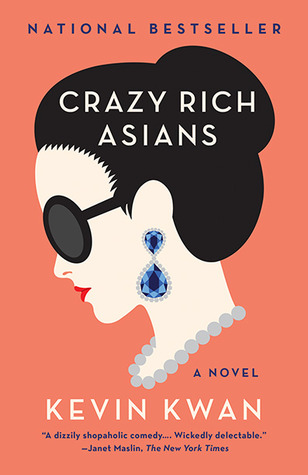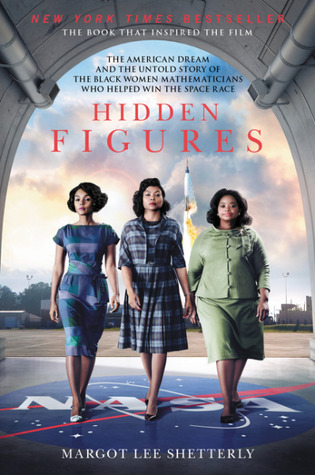Title: Freakonomics
Author: Steven D. Levitt and Stephen J. Dubner
# of Pages: 207 (hardcover)
Genre: Nonfiction, Economics, Business
Rating: ★★★★☆
Synopsis: Which is more dangerous, a gun or a swimming pool? What do schoolteachers and sumo wrestlers have in common? Why do drug dealers still live with their moms? How much do parents really matter? What kind of impact did Roe v. Wade have on violent crime? These may not sound like typical questions for an economist to ask. But Steven D. Levitt is not a typical economist. He is a much heralded scholar who studies the stuff and riddles of everyday life-; from cheating and crime to sports and child rearing-; and whose conclusions regularly turn the conventional wisdom on its head. He usually begins with a mountain of data and a simple, unasked question. Some of these questions concern life-and-death issues; others have an admittedly freakish quality. Thus the new field of study contained in this book: freakonomics.
Review: I've heard a lot about this book.
It seems to be one of those books that everyone just reads, regardless if they're interested in economics or not. I remember watching a clip from the Freakonomics documentary (the part about the sumo wrestlers) and being extremely intrigued. Since the clip I watched certainly did not have the full analysis of the situation, I wanted to dive deeper into this "freakonomics" and hear the economical approach to everyday questions.
While this themeless (as the authors have repeatedly stressed) book addresses a myriad of different, oddball questions, it was not as in depth as I expected it to be. This book is clearly meant for the masses; it's an extremely short, easy, fun read on economics which would otherwise be dry, boring, and overall uninteresting. However, this book seemed to be more like a starting point for a broader conversation of how economics can be used to unravel mysteries of everyday life.
A strange part of the book was how every chapter was preceded by an expert from a New York Times article about Levitt (it was a different expert from the same article for each chapter). It seems that Levitt is quite proud of this article, most likely because of its praise for him and how it depicts his unconventional take on economics. While Levitt might enjoy including these experts, all except the expert before the chapter about parenting seem extremely unnecessary.
Since it's such a popular book, I would recommend that anyone interested should read it. It's a quick and interesting read, although whether the authors' points are valid is up to your own judgement.
Saturday, September 22, 2018
Thursday, September 20, 2018
Book Blog #221: Crazy Rich Asians by Kevin Kwan
Title: Crazy Rich Asians
Author: Kevin Kwan
# of Pages: 527 (paperback)
Genre: Fiction, Contemporary, Romance
Rating:★★★☆☆
Synopsis: When New Yorker Rachel Chu agrees to spend the summer in Singapore with her boyfriend, Nicholas Young, she envisions a humble family home and quality time with the man she hopes to marry. But Nick has failed to give his girlfriend a few key details. One, that his childhood home looks like a palace; two, that he grew up riding in more private planes than cars; and three, that he just happens to be the country’s most eligible bachelor.
Review: This is another shameful instance where I watched the movie before I read the book.
While both the book and the movie were entertaining, neither wowed me. Rachel, our protagonist, and Michael, Astrid's husband, are the only two characters many readers can relate to as they are the sole non-crazy-rich asians. However; there's third person point of view switching, which, while better than first person POV switching, is distasteful in its execution for this book. Many times, the reader must perceive the story through the eyes of characters such as Eleanor (Nick's mom), Astrid (Nick's cousin who loves to blow hundreds of thousands of dollars while shopping), and Eddie (an extremely unlikeable character who's purpose in the story is still unclear). All of these characters are the crazy rich asians, aka too different from the common reader to be relatable.
There were only two points of view that I cared about reading: Astrid's (because of her struggles in her marriage with Michael) and Rachel (because of her struggle to understand Nick in context with his family). Everyone else's point of view made reading this book take longer than it had to.
Of course, since I was reading this book after watching the movie, I couldn't help but compare. This is one of the few times where I feel the movie made changes to the plot line that made it better than the book. For example, the cause of conflict between Michael and Astrid is much more realistic in the movie (although Michael definitely seems like a better guy in the book than he does in the movie). The ending of the book that focuses on Nick and Rachel's relationship (aka when the big conflict is resolved) had a messier execution than in the movie. Perhaps it's because there are two other books in the series, but it still feels like there is a lot of unresolved conflicts between Rachel and Nick's family.
If you are interested in reading this book then yes, I would recommend it to you. However, if you are on the fence about reading it or are searching for a book to read about asian culture in general - you may want to look elsewhere.
Author: Kevin Kwan
# of Pages: 527 (paperback)
Genre: Fiction, Contemporary, Romance
Rating:★★★☆☆
Synopsis: When New Yorker Rachel Chu agrees to spend the summer in Singapore with her boyfriend, Nicholas Young, she envisions a humble family home and quality time with the man she hopes to marry. But Nick has failed to give his girlfriend a few key details. One, that his childhood home looks like a palace; two, that he grew up riding in more private planes than cars; and three, that he just happens to be the country’s most eligible bachelor.
Review: This is another shameful instance where I watched the movie before I read the book.
While both the book and the movie were entertaining, neither wowed me. Rachel, our protagonist, and Michael, Astrid's husband, are the only two characters many readers can relate to as they are the sole non-crazy-rich asians. However; there's third person point of view switching, which, while better than first person POV switching, is distasteful in its execution for this book. Many times, the reader must perceive the story through the eyes of characters such as Eleanor (Nick's mom), Astrid (Nick's cousin who loves to blow hundreds of thousands of dollars while shopping), and Eddie (an extremely unlikeable character who's purpose in the story is still unclear). All of these characters are the crazy rich asians, aka too different from the common reader to be relatable.
There were only two points of view that I cared about reading: Astrid's (because of her struggles in her marriage with Michael) and Rachel (because of her struggle to understand Nick in context with his family). Everyone else's point of view made reading this book take longer than it had to.
Of course, since I was reading this book after watching the movie, I couldn't help but compare. This is one of the few times where I feel the movie made changes to the plot line that made it better than the book. For example, the cause of conflict between Michael and Astrid is much more realistic in the movie (although Michael definitely seems like a better guy in the book than he does in the movie). The ending of the book that focuses on Nick and Rachel's relationship (aka when the big conflict is resolved) had a messier execution than in the movie. Perhaps it's because there are two other books in the series, but it still feels like there is a lot of unresolved conflicts between Rachel and Nick's family.
If you are interested in reading this book then yes, I would recommend it to you. However, if you are on the fence about reading it or are searching for a book to read about asian culture in general - you may want to look elsewhere.
Sunday, September 9, 2018
Book Blog #220: Hidden Figures by Margot Lee Shetterly
Title: Hidden Figures
Author: Margot Lee Shetterly
# of Pages: 368 (paperback)
Genre: Nonfiction, History, Feminism
Rating: ★☆☆☆☆
Synopsis: Starting in World War II and moving through to the Cold War, the Civil Rights Movement and the Space Race, Hidden Figures follows the interwoven accounts of Dorothy Vaughan, Mary Jackson, Katherine Johnson, and Christine Darden - four African American women who participated in some of NASA's greatest successes. It chronicles their careers over nearly three decades as they faced challenges, forged alliances, and used their intellect to change their own lives, and their country's future.
Review: I LOVED the movie adaptation of Hidden Figures. Sadly, I cannot say the same for the book.
Hidden Figures reads like a textbook. After watching the movie, I thought the book would be a narrative but instead I got an extremely dry history lesson on African American women in NASA.
I would recommend the movie to anyone, but I would recommend the book to no one.
Author: Margot Lee Shetterly
# of Pages: 368 (paperback)
Genre: Nonfiction, History, Feminism
Rating: ★☆☆☆☆
Synopsis: Starting in World War II and moving through to the Cold War, the Civil Rights Movement and the Space Race, Hidden Figures follows the interwoven accounts of Dorothy Vaughan, Mary Jackson, Katherine Johnson, and Christine Darden - four African American women who participated in some of NASA's greatest successes. It chronicles their careers over nearly three decades as they faced challenges, forged alliances, and used their intellect to change their own lives, and their country's future.
Review: I LOVED the movie adaptation of Hidden Figures. Sadly, I cannot say the same for the book.
Hidden Figures reads like a textbook. After watching the movie, I thought the book would be a narrative but instead I got an extremely dry history lesson on African American women in NASA.
I would recommend the movie to anyone, but I would recommend the book to no one.
Subscribe to:
Posts (Atom)











